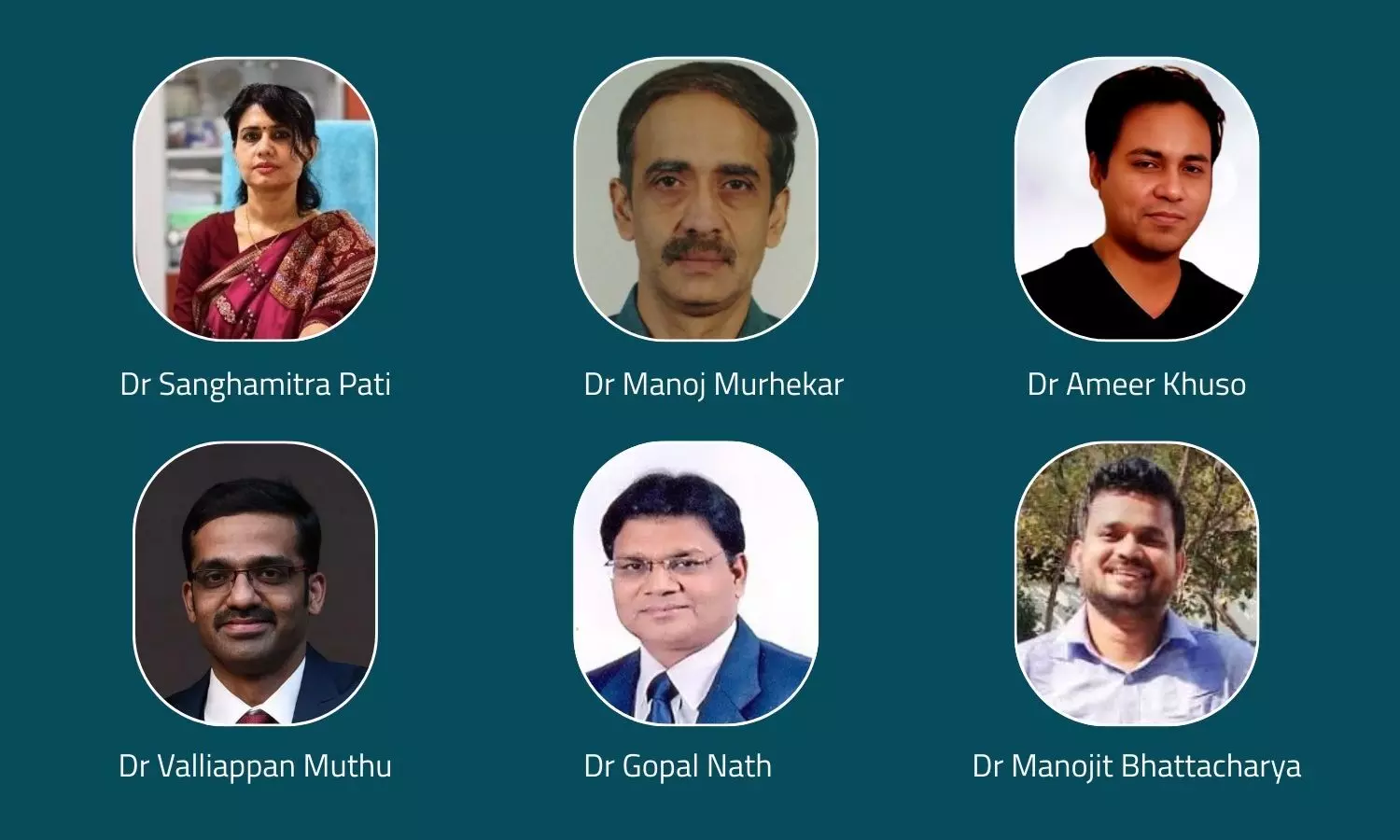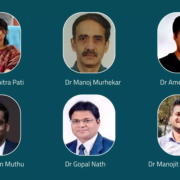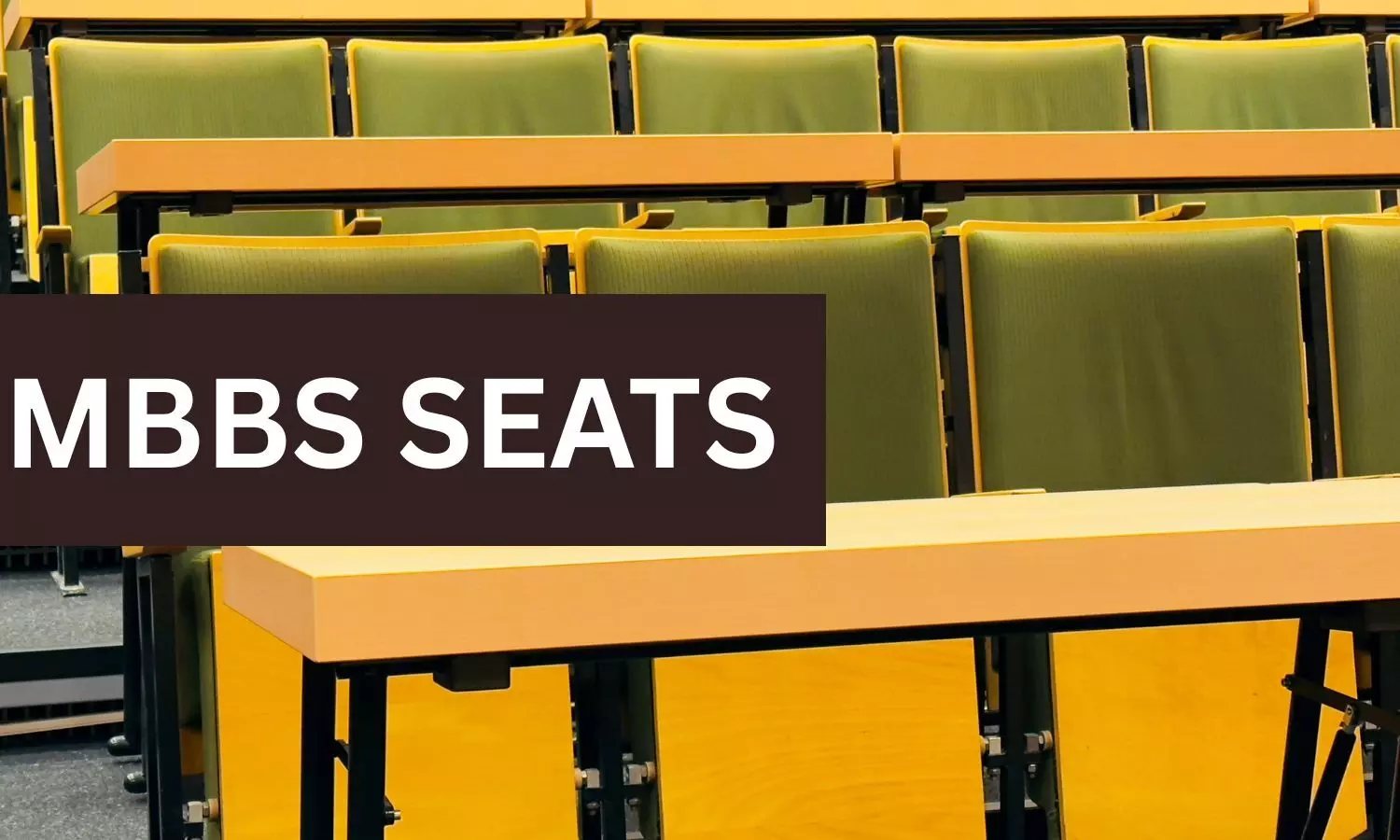
New Delhi: Altogether 8 Indian microbiologists from prestigious health and medical institutes across India have been recognised among the world’s top 2% of scientists in the database curated by Professor John P.A. Ioannidis of Stanford University, in collaboration with the Elsevier Data Repository.
This honour acknowledges their pioneering research, clinical achievements, and consistent impact on the field. The database of Stanford University for the year 2025 of top-cited scientists provides standardised information on citations, h-index, co-authorship adjusted h-index, citations to papers in different authorship positions and a composite indicator (c-score). The selection is based on the top 100,000 scientists by c-score (with and without self-citations) or a 2% or above percentile rank in the sub-field.
Here are the details of the Indian microbiologists included in Stanford University’s 2025 list:
1. Dr Sanghamitra Pati
A distinguished physician, laboratory scientist, and public health researcher with over 25 years of experience in the field, Dr Sanghamitra began her academic journey by earning an MBBS in 1992 and an MD in 1998 from MKCG Medical College in Berhampur, Odisha, India. In 2000, she was honoured with the Joint Japan/World Bank Graduate Scholarship (JJ/WBGSP), which allowed her to pursue a Master of Public Health (MPH) at the University of Maastricht in the Netherlands.
She further advanced her education and achieved a PhD from the same university in 2023. Dr Pati’s leadership roles have been impactful, particularly in her tenure as the Director of the ICMR-Regional Medical Research Centre in Bhubaneswar, from August 2016 to December 2024. In December 2024, she took on the prestigious & responsible role of Additional Director General at the Indian Council of Medical Research (ICMR) in New Delhi, continuing her significant contributions to public health research and policy.
In appreciation of her extraordinary contribution to public health and research, she has been conferred with prestigious awards like Samanta Chandrasekhara Award-2018 by Odisha Bigyan Academy, Devi Award-2020 by the honourable Chief Minister, the President’s Appreciation Award by Indian Medical Association (IMA), Times Power Women Award-2021, Madhubabu Odisha Gourav Samman Award -2023, Cuttack, Biswamukti Rashtriya Swasthyasewa Samman-2023, Odisha Women Award-2023 by Ever Green Forum and Chief Minister’s Award for Excellence in Healthcare Services, Govt. of Odisha -2024 and felicited by Odisha CSR Forum-2024 for her extraordinary contribution to Public Health and Reseach, instrumented in co-developing the first Make in Odisha rapidantigen kit for Covid-19 diagnosis.
Dr Pati is a Fellow of the National Academy of Medical Sciences (NAMS), India; the Royal Society of Public Health (FRSPH), UK; and the Union for International Cancer Control (UICC).
Dr Pati has been recognised as one of India’s most influential researchers and is a distinguished Lown Scholar at Harvard School of Public Health, Boston, with 25 years of research experience.
According to the list, Dr Pati holds a rank of 59,069 in the list based on the composite score excluding self-citations, and 55,140 when all citations are included. By the end of 2024, her h-index, excluding self-citations, stands at 20, with altogether 4,781 citations for 2024 (excluding self-citations).
2. Dr Manoj Murhekar
A director at the National Institute of Epidemiology, Indian Council of Medical Research, Chennai, Dr Murhekar obtained his MBBS and MD in community medicine from Government Medical College, Nagpur, Maharashtra, India. He is currently the director of the National Institute of Epidemiology (NIE), Chennai, a permanent institute of the Indian Council of Medical Research. His research interests include Infectious disease epidemiology, vaccine-preventable diseases, and disease surveillance and outbreak investigations. He is also the course director for the field epidemiology training program (FETP) that the institute has conducted since 2001.
Prior to joining NIE, Dr Murhekar worked at the Regional Medical Research Centre in Port Blair on the Andaman and Nicobar Islands. He was awarded the Major General Saheb Singh Sokhey Award of the Indian Council of Medical Research for his contribution to the field of viral hepatitis among the tribal population of Andaman and Nicobar. Dr Murhekar also worked with the World Health Organisation (WHO) Western Pacific Regional Office as a consultant and professional staff member in Papua New Guinea and the Philippines. He has 140 publications in peer-reviewed journals to his credit. He is the associate editor of the journal BMC Infectious Diseases.
As per the list, Dr Murhekar holds a rank of 67,994 in the list based on the composite score excluding self-citations, and 68,093 when all citations are included. By the end of 2024, his h-index, excluding self-citations, stands at 12, with a total of 2,418 citations for 2024 (excluding self-citations).
3. Dr. Surendra Kumar Sharma
He is a distinguished physician and academician with expertise spanning Environmental Medicine, Infectious Diseases, Internal Medicine, Pulmonary & Critical Care, and Sleep Medicine. He earned his MD from PGIMER, Chandigarh, and PhD from AIIMS, New Delhi, and went on to serve as Professor and Head of the Department of Medicine at AIIMS, New Delhi.
Elected as a Fellow of the National Academy of Sciences, India (FNASc) in 2010 under the Medicine section, he has also been recognised as FNA and FASc for his significant contributions to medical research and clinical practice. Throughout his career, Dr Sharma has been widely respected for his pioneering work and leadership in advancing healthcare and medical education in India.
As per the list, Dr Sharma holds a rank of 79,544 in the list based on the composite score excluding self-citations, and 86,744 when all citations are included. By the end of 2024, his h-index, excluding self-citations, stands at 11, with a total of 704 citations for 2024 (excluding self-citations).
4. Dr Sanjeet Bhagchi
Specialising in international health and medical news, features and reviews, Dr Sanjeet Bhagchi is a physician and medical journalist. He is a regular international correspondent (news) for The BMJ, The Lancet group of journals, and the CMAJ.
He has professional medical writing experience of 15 years with publications (news/features/reviews) including The BMJ, The Lancet, The Lancet Oncology, The Lancet Neurology, The Lancet Infectious Diseases, The Lancet Respiratory Medicine, The Lancet Diabetes and Endocrinology, The Lancet Psychiatry, JAMA, the CMAJ, Health Care News, PLOS Medicine, PLOS Biology, Science in Africa, scidev.net, Down to Earth, The Telegraph and The Statesman.
As a journalist, he was a part of the news team awarded best science journalism on the world wide web” in 2006 by the Association of British Science Writers (ABSW).
As per the list, Dr Bhagchi holds a rank of 93,769 in the list based on the composite score excluding self-citations, and 109,682 when all citations are included. By the end of 2024, his h-index, excluding self-citations, stands at 5, with a total of 152 citations for 2024 (excluding self-citations).
5. Dr Manojit Bhattacharya
Dr Manojit Bhattacharya is working as an Assistant Professor at Fakir Mohan University, Balasore. Dr. Bhattacharya completed his M.Sc. and PhD from Vidyasagar University, West Bengal. He served as National Post Doctorate Fellow at ICAR-Central Inland Fisheries Research Institute, Ministry of Agriculture, Govt. of India (2017-2019). He also worked as a Visiting Research Trainee at the Institute for Skeletal Ageing & Orthopaedic Surgery, Hallym University, Gangwon-do, Republic of Korea, in the year 2014-2015 (QS World University Ranking 571-580 in the year 2023), INSA-Visiting Scientist at National Institute Virology, ICMR-Govt. of India (2024).
Dr Bhattacharya holds more than 13 years of Research & Development experience in the fields of advanced Molecular biology and Computational biology., he has published 146 research articles in reputed international journals. In 2019, he was selected as Junior Scientist of the Year by the National Environmental Science Academy (NESA), New Delhi. Currently, Dr Bhattacharya’s research interest is Medical bioinformatics/immunoinformatics, noncoding RNA, COVID-19, Therapeutics, Infectious diseases, etc. He has developed 07 technologies ( designing peptide-based vaccines) and filed patent applications for these technologies. Dr Bhattacharya published more than 146 SCI/SCIE and Scopus index papers, one book, and two edited books.
As per the list, Dr Bhattacharya holds a rank of 104,800 in the list based on the composite score excluding self-citations, and 98,093 when all citations are included. By the end of 2024, his h-index, excluding self-citations, stands at 14, with a total of 1,035 citations for 2024 (excluding self-citations).
6. Dr Ameer Khusro
Involved in Bacteriology research, Dr Ameer Khusro is an Assistant Professor and Researcher at the Department of Research Analytics, Saveetha Dental College and Hospitals, Saveetha Institute of Medical and Technical Sciences, Saveetha University. He gained his PhD in Biotechnology fromthe University of Madras.
His main area of interest is also related to Bacteriology, Enzyme Technology, Nanobiotechnology, and Environmental Microbiology. He has published several research articles in journals as a main author/co-author.
As per the list, Dr Khusro holds a rank of 124,432 in the list based on the composite score excluding self-citations, and 114,956 when all citations are included. By the end of 2024, his h-index, excluding self-citations, stands at 12, with a total of 1,546 citations for 2024 (excluding self-citations).
7. Dr Valliappan Muthu
Dr. Valliappan completed his MBBS from Stanley Medical College, Chennai, India, in 2009 and MD (Internal Medicine) from PGIMER, Chandigarh, India, in 2013. He then joined the DM (Pulmonary and Critical Care Medicine) fellowship at PGIMER, Chandigarh, India, which he completed in 2016.
He worked as a Senior Research Associate from 2016 till Aug 2019, when he joined as an Associate Professor in the Department of Pulmonary Medicine, PGIMER, Chandigarh.
His areas of interest include allergic bronchopulmonary aspergillosis, pulmonary mucormycosis, critical care, and interventional pulmonology. He has over 100 publications to his credit.
As per the list, Dr Muthu holds a rank of 188,031 in the list based on the composite score excluding self-citations, and 126,405 when all citations are included. By the end of 2024, his h-index, excluding self-citations, stands at 12, with a total of 626 citations for 2024 (excluding self-citations).
8. Dr Gopal Nath
With 37 years of teaching experience in medical microbiology, Dr Gopal Nath is a pioneer in the field of clinical Bacteriophage Therapy. He is a Professor at the Department of Microbiology, Faculty of Medicine at the Institute of Medical Sciences, Banaras Hindu University. He is the founder and secretary of the Society for Bacteriophage Research and Therapy. He has established for the first time that chronic Salmonella Typhi infection may lead to malignant transformations in the hepato-biliary tract. S. Typhi is the second bacterium implicated in carcinogenesis after Helicobacter pylori. He has published 290 research articles with an H factor of 55 and a total citation of more than 11412.
Dr Gopal Nath got his M.B.B.S. from Allahabad and M.D. & PhD (Microbiology) degrees from Banaras Hindu University. His research area is Salmonella, Gut Microbiome, and Bacteriophage Therapy. He has screened several synthetic and natural compounds for their antimicrobial activity. He has been a visiting Professor at S.K.C.C., San Diego, U.S.A. He was a jury member selected for the prestigious International King Faisal Award, Saudi Arabia, 2015.
Currently, he is carrying out different aspects of clinical applications of Bacteriophage therapy, especially chronic wound healing, safe dose determination in cases of septicaemia and treating auto-brewery syndrome/obesity. He has been rated in the top 3% of Indian scientists.
He was conferred Fellow of the National Academy of Medical Sciences in 2016. He has also been awarded Prof. U.C. Chaturvedi and Dr P.N. Chuttani Orations. He has been awarded the Earnest Hanbury Hankin Life Time Achievement Award for 2021 by the Society for Bacteriophage Research and Therapy. He has completed 13 government-funded projects, guided 112 MD and 16 PhD scholars, and organised seven national and international conferences.
As per the list, Dr Nath holds a rank of 222,047 in the list based on the composite score excluding self-citations, and 240,227 when all citations are included. By the end of 2024, his h-index, excluding self-citations, stands at 13, with a total of 743 citations for 2024 (excluding self-citations).











